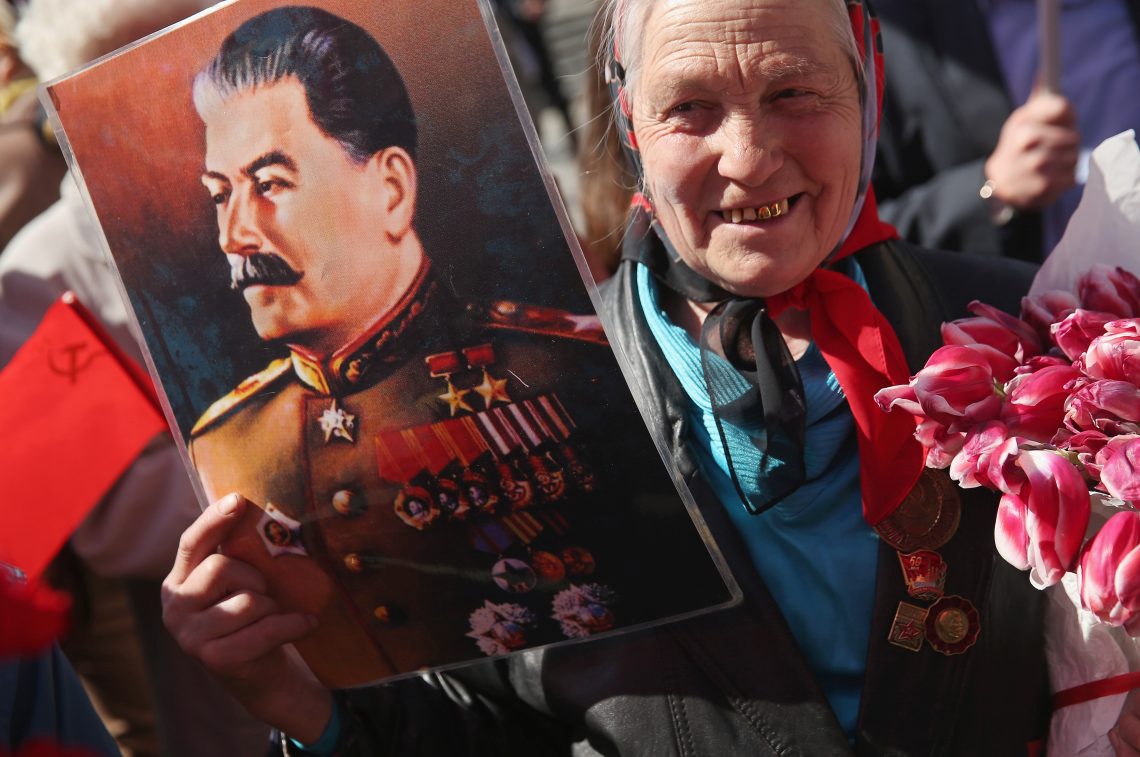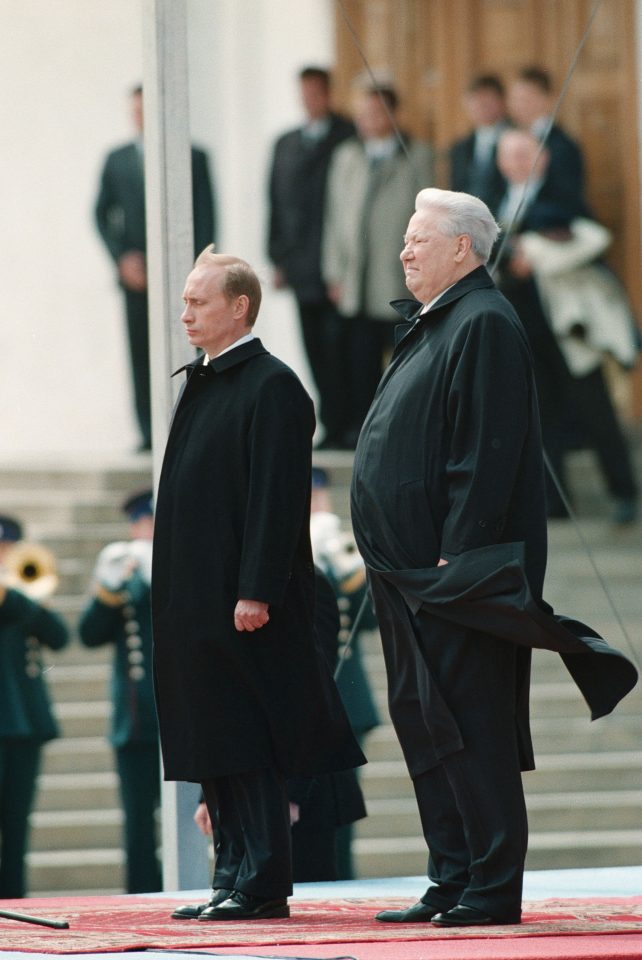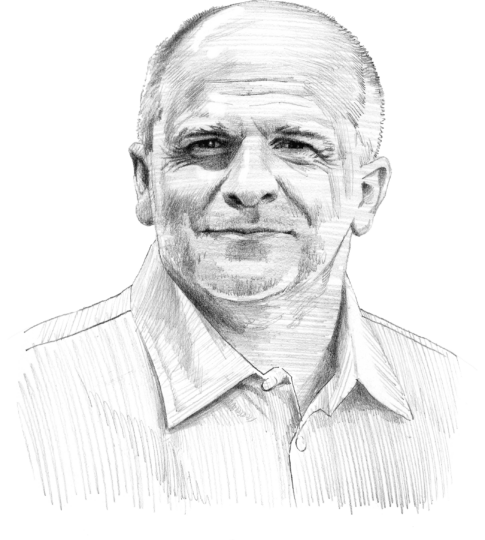Russia’s attempt to build a Third Empire
While the Kremlin’s war in Ukraine has been a disaster, the ideology that caused it has proved astonishingly popular and durable.

In a nutshell
- Russia’s imperial mission has long been the Putin regime’s legitimizing myth
- As hopes of reviving the economy faded, Russian politics were militarized
- Broad support for this neo-imperialist ideology clouds the outlook for change
Media speculation is rife that Russian President Vladimir Putin could be ousted by his entourage. However, the key to understanding Kremlin politics is to grasp the state of Russian society at large. Opinion polls conducted in Russia show that about 60 percent of the population has an imperialist attitude. Modern Russians still think in terms of “Russia’s rights” over Ukraine or Georgia.
Russian neo-imperialism is rooted in historical myths formed during the tsarist era and based on a social consensus that the use of military force is permissible in pursuit of this vision. Among the myths cultivated by the Russian state are narratives about the “Russianness” of Crimea or Russia’s historical claims to Georgia. The bulk of these, in the strictly historical sense, are illusory.
Among the myths absolving Russia’s brutal policies, one holds a special place – the myth of Russian exceptionalism.
It is enough to recall that the Georgian state, with its unique alphabet, rich architecture and indigenous political system, emerged as a separate organism in the fourth century, soon after the adoption of Christianity. That makes Georgia’s political history about a thousand years longer than Russia’s. Georgia was occupied by the Romanov Empire at about the same time as the Polish cities of Bialystok and Warsaw. Could one therefore argue that Russia has just claims to numerous Polish cities as well?
Making myths
The Georgian example shows how the mechanism of contemporary Russian imperialism works. This narrative, promoted by the authorities and the mass media they dominate, is then assimilated by Russian citizens, and often also wins recognition by opinion leaders in the West.
In the context of constructing historical narratives for the Russian public as a basis for military aggression, modern Russia’s origin story is crucial. In the nationalist tradition, which has become dominant in the Putin era, the wellspring of Russian statehood is Kievan Rus, with its capital Kyiv, where St. Vladimir was baptized. To the Russian mind, no restitution of the empire is possible without Kyiv. Hence, there is no doubt that Mr. Putin began considering an attack on Ukraine as early as the Orange Revolution’s triumph in 2005. It was then that Kremlin analysts probably first noticed the increasing tilt of Ukrainian society toward the West, which from the Russian point of view could potentially negate any possibility of “regaining” Kyiv.
Among the myths absolving Russia’s brutal policies, one holds a special place – the myth of Russian exceptionalism. It propagates the belief that Russia cannot develop like other countries because of its unique geographical position (encompassing, for example, large areas of permafrost) and vast landmass in comparison to a relatively sparse population. This belief serves to justify both Russia’s territorial claims and its failure to carry out internal reforms (because efficient administration is impossible over such a large territory). Yet a simple comparison of Russia to Canada shows that the whole narrative makes no sense.
The intervention of federal troops in Chechnya in 1994 marked the beginning of a series of little wars, usually in the post-Soviet space, that were in fact security service operations using military and state institutions as instruments.
The creation and propagation of myths about Russian “rights” to other states’ territories is based, among other things, on blurring the distinction between Russia and its imperial heritage. Formally, Russia recognized the Soviet Union’s disintegration after 1991, including the borders of the successor states that emerged from it. Yet it is apparent today that this recognition did not signify a real break with the past. The attempt to build Russia as a modern state organized in contemporary fashion lasted only a few years. The failures of the early Yeltsin years put Russia back on the road to rebuilding the empire.
One sign of a return to post-Soviet roots was the replacement of Foreign Minister Andrei Kozyrev by Yevgeny Primakov, who represented a powerful constituency rooted in the Soviet security services. Russian foreign policy again began to be viewed in terms of “special operations,” organized by the secret services of the former USSR for their own goals and interests. Thus, they embarked down a path that led to full-scale war with Ukraine and the disruption of the entire post-Cold War order, of which Russia itself was one of the main architects.
More from our Reassessing Russia series:
- Stefan Hedlund: Will Finland, Sweden make a joint NATO bid?
- Karl-Peter Schwarz: The problem with sanctions
- Thitinan Pongsudhirak: The age-old nature of the ‘new Cold War’
Militarized thought
War turned out to be the instrument Russia chose to regain its imperial position, and Russian society appeared ready to give its full support to this solution. The result is a general militarization of Russian thinking during the Putin era. The genesis of this phenomenon lies in the early 1990s, just after the collapse of the Soviet Union, when republics within the Russian Federation itself began to demand independence.
These aspirations for independence emerged in various regions, including resource-rich areas such as Yakutia. The general idea was that the non-Russian parts of the Federation wanted to follow a similar path as the former union states of the USSR, like Turkmenistan or Azerbaijan. This emancipation process was most noticeable among Muslim peoples within the Federation. In 1994, this push for self-determination went farthest in a small republic in the North Caucasus – Chechnya.
The intervention of federal troops in Chechnya on December 11, 1994, marked the beginning of a series of little wars waged by Russia, usually in the post-Soviet space, that were in fact security service operations (“special operations”) using military and state institutions as instruments. A key element in the logic of these missions was their propaganda value, which helped legitimize the actions of President Putin’s “power vertical.”

After the First Chechen War (1994-1996) came the Second (1999-2000), followed by the Georgian War (2008), the annexation of Crimea and intervention in eastern Ukraine (2014), and the intervention in Syria (2015). This list does not include the role of Russian troops, often as peacekeepers, in other “frozen conflicts” in Transnistria, Abkhazia, South Ossetia, Nagorno-Karabakh and Tajikistan, or Russian military contractors in Libya or the Central African Republic. Apart from military interventions, Russia has also engaged in economic or trade wars with Georgia, Ukraine and Moldova, and was also behind cyberattacks on vital infrastructure in former Soviet countries such as Ukraine and Estonia.
Military operations served as a pretext for growing arms expenditures, funded largely by the sale of hydrocarbons – oil, gas and coal – to Western countries. But perhaps the most important dynamic at work, one that explains much of what is going on in Ukraine today, was Mr. Putin’s failure to achieve his declared ambition when taking power in 2000 – fundamental reform of the Russian state. This goal harked back to Russia’s archetypal rulers like Peter I, who dreamed of “modernizing” the country.
Political poison
Yet Mr. Putin’s economic reforms, like Yeltsin’s efforts, came to nothing. Russia’s extractive, raw materials-based economic model demoralized its political and business elites and made them lazy. As the limitless stream of petrodollars gushed, there was no motivating factor for innovation or change.
Over time, this ineffectiveness at reform became a source of anxiety for Mr. Putin that he could lose power. This is how he found himself on the road to committing war crimes. He propped up eroding public support by waging more wars. At the same time, he systematically reinforced authoritarian mechanisms. Over two decades, he virtually eliminated free elections, abolished the free press and subjugated the judicial system in Russia. During the same time span, the circle of power around him narrowed steadily to just a handful of people. The methods used by former members of the old Soviet secret service apparatus came to have a decisive impact.
An important element of pressure on society and opinion leaders was the use of terror against selected opponents, whether it was the assassination of Boris Nemtsov or the use of the Novichok nerve agent against Alexey Navalny. Quite often the chosen instrument was poison – as in the famous cases of Alexander Litvinenko and Sergei Skripal in the United Kingdom, the opposition journalist and filmmaker Vladimir Kara-Murza (twice, each time unsuccessfully) and Mr. Navalny. All this happened in an atmosphere of authoritarian and even totalitarian intrigue: it was clear these events were related to government policy, but debatable who precisely had an interest in carrying out a particular operation at a given moment. Under such conditions, many independent activists chose to emigrate.
The essence of the Putinist system is a radical version of authoritarianism with totalitarian features. It is a system based on the power wielded by a small group of people whose careers started in the Soviet security services, who are determined to use clandestine operations and war to consolidate power, and who legitimize their power with historical myths. This inner team of rivals, which some Western analysts refer to as “collegiate Putin,” is surrounded by an outer circle of influential oligarchs who profit from the system. Beyond that, however, Putinism enjoys relatively strong support from ordinary Russians – potentially even more than President Putin himself. The man can always be removed from office, but that does not mean the system he created will be jettisoned.
Rewriting history
The first Russian empire, under the Romanov dynasty, fell with the Bolshevik Revolution in 1917 and the end of World War I. It was immediately followed by the formation of a second multinational empire, the Soviet Union. This in turn collapsed in 1991. Mr. Putin’s message after coming to power in 2000 was very simple: the greatest tragedy of 20th-century Russian history was the breakup of the Soviet Union. The new president reinstated holidays associated with imperial traditions and rekindled sentiment for the “greatness of Russia.” This sentiment became the social glue that integrated modern Russians and the chief justification for the leader’s long tenure in power and his coterie’s access to huge wealth from public funds.
In the field of propaganda, Russia suffered a crushing defeat, as the Ukrainians used the moral high ground to gain the upper hand in the information war.
The epitome of Mr. Putin’s policy was the fight against the Memorial Society, Russia’s oldest and largest human rights group, which culminated in its court-ordered closure in 2021. For decades, Memorial had conducted research and popularized knowledge about the totalitarian practices during the Soviet period, especially crimes against humanity committed under Stalin. Over time, however, the association increasingly ran afoul of the authorities, and some researchers into the history of Soviet terror were themselves banished to penal colonies.
Mr. Putin, meanwhile, stressed his fondness for the Soviet Union in the international arena as well, making little effort to conceal his desire to rebuild it. As time passed and his management of Russia’s internal affairs showed little success, the president became increasingly possessed by an “imperial mania” to rebuild Russia as a continental empire with broad access to the Arctic Ocean (as shown by growing tensions with Norway over the Svalbard archipelago) as well as to the warmer waters of the Black Sea (through the 2014 annexation of Crimea and the creation of a “New Russia” carved out of southeastern Ukraine). Moscow’s vision of this new, third empire mixed old Russian imperialism and Orthodox Church traditions with post-Soviet embellishments. Each of these elements was aimed at different groups of Russians.
Historical myths prevalent in Russian society and the effects of authoritarian rule have served to advance this kind of archaic agenda. Opinion polls show that many Russians think of their country’s greatness in terms of territorial expansion. In this sense, we are dealing with a very different approach to that of citizens in most Western countries. People there think of their countries’ standing largely in terms of economic, social or technological development, or through success in entertainment or sports.
The former imperial powers of the West, such as the Netherlands or Portugal, have long abandoned any desire to recover influence in their former colonies or fight for new territory out of an imperialist lust for conquest. In Russia, the exact opposite is true. President Putin came to power with a pledge to modernize the country and enrich its citizens. Neither of these promises has been fulfilled; all that remains is the mirage of a reconstituted empire. To make this vision real, Mr. Putin had to foment wars in the “near abroad” and set about rebuilding Russia’s sphere of influence.
The collapse of the Russian military machine
Imperial circles
Before expanding abroad, Mr. Putin needed a strong hand to consolidate power at home and stifle resistance in nonethnic Russian parts of the Federation, such as Chechnya. This process began in the early 2000s and was largely completed several years ago.
Next, he needed demonstrable success in returning some former Soviet republics to the motherland. Over time, he set this process in motion. A key example is Belarus, where Mr. Putin has been able to establish near-total dominance after President Alexander Lukashenko was nearly overthrown by mass protests after the falsified presidential election of 2020. Another is Kazakhstan, where a “special operation” led by Russian troops in January 2022 to backstop the government against urban unrest (which bore all the hallmarks of an internal coup) now appears to have served as a dress rehearsal for the invasion of Ukraine. In both cases, the goal seems to have been to make these strategically positioned countries more subordinate to Moscow.
We need a model for de-Putinizing Russia, meaning the country’s transition from an authoritarian system to some version of democracy.
It was also necessary to find allies in the former Warsaw Pact countries (the third circle of the empire under the Soviet Union). In this case, Mr. Putin had less success – he can really only count on Hungary. He did better at restoring influence in the fourth imperial circle, the former Soviet client states in other parts of the world like Syria and Venezuela.
Surprisingly, President Putin’s efforts to rebuild spheres of influence seemed to work best in the democratic states of Western Europe. In Italy and France, Matteo Salvini’s Lega and Marine Le Pen’s National Rally have assumed the role once played by the former Italian and French communist parties, respectively. Russian political and economic influence, mainly through lucrative energy contracts, pervaded many other countries as well, including such critical points as London’s City and the top levels of German government, as symbolized by former Chancellor Gerhard Schroeder’s chairmanship of a Gazprom subsidiary. This network of Putin sympathizers even became known as the “Putintern,” a play on the name of the Stalinist-era Comintern.
Ultimate test
Thus, by early 2022, Mr. Putin may have decided that the next stage of empire-building was to recapture Kyiv. In a speech justifying the invasion, he resorted several times to Stalinist political theses. Most blatantly, he flatly denied the existence of a Ukrainian nation. It soon became clear, however, that the empire-building machine that Mr. Putin’s team had constructed was rusty. This applied both to the quality of Russian intelligence and the efficiency of its army.
In the field of propaganda, Russia suffered a crushing defeat, as the Ukrainians used the moral high ground to gain the upper hand in the information war. Mr. Putin was also disappointed in his expectations that China would become actively engaged on the Russian side. While Beijing is focused on its global rivalry with the U.S., it has no interest in helping Russia – which it views as a weak, unstable state – rebuild its empire. Even former Soviet states where Russian influence appeared dominant have failed President Putin. Kazakhstan, Belarus and relatively feeble states like Armenia have unanimously refused to participate in the Ukraine war. At this stage, it appears the special operation code named “Third Empire” is failing.
Vladimir Putin is likely to follow Stalin’s example in attempting to turn the “anti-Nazi operation” in Ukraine into a “war against the West.” From his point of view, the “special operation” narrative needs changing into a defense of Mother Russia and Russian identity, much as Stalin did in his own narrative of the Great Patriotic War.
The war crimes committed by Russian troops in Mariupol and other Ukrainian cities prevent the Russian president from simply reopening negotiations with the West. Any possibility of returning to business as usual necessarily raises the problem of de-Putinization, or what will become of Russia after this conflict. Here we are dealing not only with Mr. Putin, but with the larger systemic problem of Russian society, which in the main genuinely supports the current regime’s neo-imperialism. One might even risk the hypothesis that a leadership change in Russia under current conditions would probably lead to the emergence of an even more radical leader claiming “Putin was unequal to the task of rebuilding the empire.”
We need a model for de-Putinizing Russia, meaning the country’s transition from an authoritarian system to some version of democracy. This issue touches on the very foundations of global security, since Russia has at its disposal an enormous nuclear arsenal and other weapons of mass destruction. What is clear is that Putinism, if it survives as a political system in Russia, only increases the risk that these weapons will ultimately be used.








